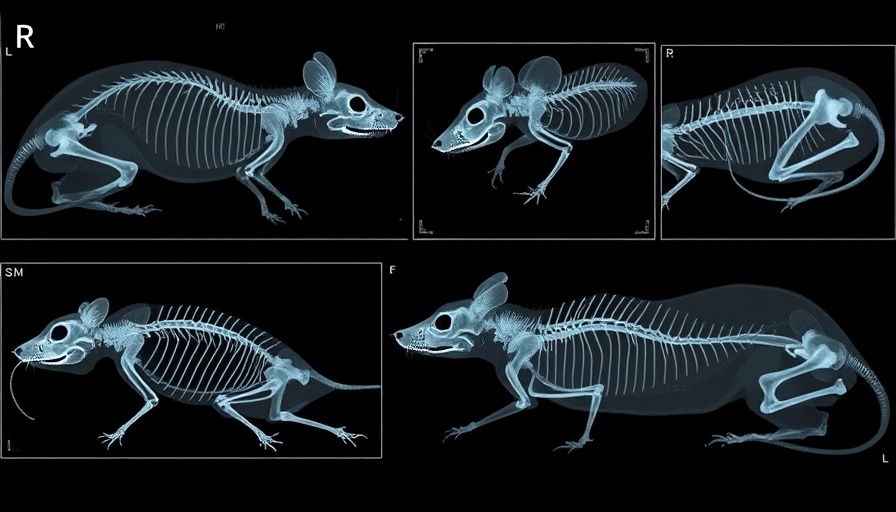
Revolutionizing Treatment for Rare Bone Diseases Through Gene Therapy
For decades, patients suffering from hypophosphatasia (HPP), a rare and debilitating bone disease, have relied on enzyme replacement therapy as their only treatment option. This process, which involves several injections per week, has proven effective but is known to be invasive and cumbersome. Recent advances in gene therapy, however, signal a promising shift towards a more streamlined and long-lasting solution.
The Breakthrough: A One-Time Gene Therapy Approach
Researchers at Sanford Burnham Prebys have been making strides towards a revolutionary gene therapy that could provide a 'one-shot stop' treatment for HPP. This groundbreaking approach uses an engineered virus to deliver a gene capable of producing the missing alkaline phosphatase enzyme (TNAP). The lead researcher, Dr. José Luis Millán, emphasizes that this innovative method could mean the difference between a life lived constantly managing painful symptoms and a life with newfound freedom and opportunities.
How It Works: Mechanism of Gene Therapy
The therapy, known as AAV8-TNAP-D10, is designed to reverse the malformation of bones and teeth seen in those with HPP. By introducing a gene that enables the body to produce its own TNAP enzyme, this therapy potentially corrects the biochemical deficiency that leads to the disease. In recent studies conducted on mice, high doses of this gene therapy resulted in a complete reversal of bone malformations, demonstrating the therapy’s promise for achieving lasting benefits.
Comparative Study: Traditional Treatment vs. Gene Therapy
Traditionally, patients with HPP would undergo frequent injections of asfotase alfa, which, though lifesaving, requires ongoing medical attention and management of potential side effects. In contrast, the new gene therapy posits a more patient-friendly option—a single treatment that could sustain effects throughout a patient’s life without the pain and inconvenience of regular injections.
The Bigger Picture: Implications for Other Rare Diseases
The advances made through the research on gene therapy for HPP may have far-reaching implications for treating other rare genetic disorders. As researchers refine these techniques, there is potential for similar therapies to emerge across various conditions, ultimately enhancing the quality of life for many patients plagued by rare ailments. This approach would also alleviate the burden on healthcare systems by moving towards more permanent solutions rather than recurring treatments.
Current Challenges and Future Directions
As promising as the results are, the pathway to clinical application is fraught with challenges, including ensuring long-term safety and efficacy in human patients. While initial studies have been positive in animal models, the translation to human therapy is yet to be fully realized. Ongoing research and clinical trials will be critical in validating the safety and effectiveness of this new approach. With researchers eager to move forward, the hope is that therapies like AAV8-TNAP-D10 will soon become approved and accessible to patients in need.
What This Means for Patients and Families
For families affected by HPP, the prospect of a once-in-a-lifetime treatment is not just about the effectiveness of the therapy; it represents a profound change in living with chronic disease. The stress and anxiety of managing daily injections can have a significant emotional toll on both patients and caregivers. A one-time gene therapy could provide relief not just physically but also psychologically—a shift from a reactive to a proactive healthcare approach.
Conclusion: A New Era in Biotechnology
The development of gene therapy for hypophosphatasia marks an exciting milestone in medical innovation. As studies move forward, there is hope this breakthrough can pave the way for treatments across various conditions, enriching lives while reducing the clinical burden on patients. As we stand on the brink of a new era in healthcare, the question remains: how can we ensure that advancements like these reach every patient in need?
If you or someone you know is affected by HPP, stay informed on advancements in gene therapy that could potentially change lives. Knowledge is power, and sharing information may be the key to better treatment options and improved quality of life.
 Add Row
Add Row  Add
Add 




Write A Comment